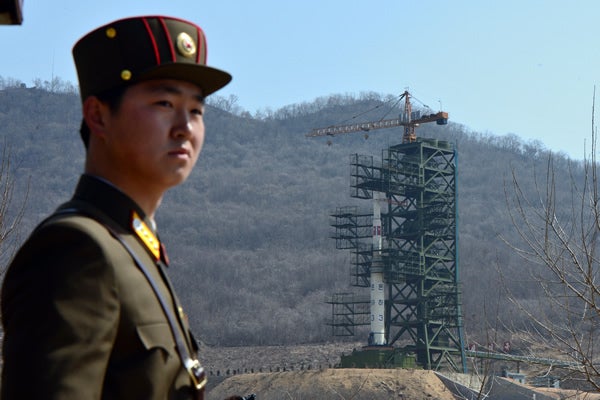North Korea will defy international pressure and launch its Unha-3 missile, perhaps as early as Wednesday night (Washington, D.C., time). Despite Pyongyang’s characterization of the forthcoming launch as that of a peaceful civilian satellite, it would clearly violate U.N. Security Council (UNSC) resolutions that preclude “any launch using ballistic missile technology.”
As such, the United States should press for another UNSC condemnatory statement that closes existing loopholes and imposes additional sanctions. Washington must make clear to Beijing that continuing to obstruct a resolute international response will only engender more North Korean belligerence and a stronger allied response—neither of which is in China’s strategic interests.
Escalating tensions from Pyongyang’s missile launch and a likely follow-on nuclear test could even spur North Korean leader Kim Jong-un to undertake more provocative military actions. The new, untested dictator is more likely than his father Kim Jong-il to miscalculate during a crisis and stumble across a redline, unaware that Seoul is more likely to retaliate to a military clash than in the past.
All of this could occur even as the United States fails to adequately resource the much-vaunted Asia pivot. Drawdowns in U.S. forces in Europe and Afghanistan are not shifting to address growing Asian threats—a case of robbing Peter to not pay Paul. The planned $1 trillion cuts to the U.S. military would undercut Washington’s ability to fulfill its security commitments, even as North Korea and China are acting more assertively.




























